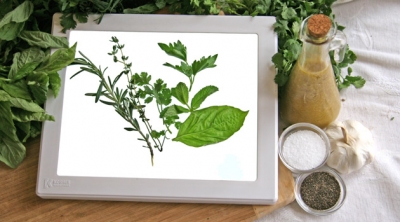People are becoming more and more aware of what they eat and drink and how it impacts them — both physically and mentally. Many start eating kosher for health reasons. In our last article, we looked at foods that are considered kosher, when we eat them, and what is used to prepare the kosher products. This month, we will look at how kosher items are raised and handled.
It’s Not Only What You Eat
One of the biggest advantages to kosher is the extra care given in handling the food we consume. This does not begin with how a product is prepared but begins much earlier in the process. Most people may not be aware, but the USDA allows certain amounts of contaminants in our food from insect parts to contamination by mice. Hopefully, I am not offending, but this is the plain truth. Kosher does not allow this; furthermore, it even regulates the feed that an animal eats as it is raised.
The process begins at the earliest stage and follows through to your table. One of the keys is strict supervision. As mentioned in a previous article, kosher inspections occur much more often than do non-kosher inspections. These inspections are very strict, not only inspecting what we eat, but how it is processed, what machines are used, and even what items are used to make up the products. Let’s address these in two sections: Vegetables/Grains and Meat.
Vegetables and Grains
So you maybe thinking, But last article you said all vegetables and grains are kosher. I’m glad to know you were paying attention, and you are correct. So how can a vegetable be non-kosher? The answer is simple — how it is raised and processed. For example, vegetables tainted by human waste cannot be eaten (remember the spinach contamination a few years ago). Vegetables with bugs cannot be eaten also. In an observant Jewish home, there are often light boxes. These shine light onto and through leafy vegetables to aid in removing any insects, eggs, or larvae. Also, as previously discussed, waxes made out of beetles are not allowed. This has a dual benefit; not only are you not eating bugs, you are also not eating poisons trapped on the fruit by the bugs. A side note: wash the fruit with baking soda, as it removes the wax.
The light boxes are used through the entire process.
Kosher also does not allow contaminants in cereals or grains. If a supplier is found with an issue, the line is shut down and all equipment must be cleaned and the infected product must not be sold or distributed as kosher. We get notices when this happens to make sure we do not get a contaminated product (thanks to the OU Kosher certifying agency for this).
Meat, Fowl & Fish
Animal feed can be contaminated with insects, mice droppings, and even dead animal parts (this is how we got mad cow disease). With kosher, this is regulated. The animals must not be sick, and even the lungs are inspected to verify that there are no lesions indicating disease (Glatt Kosher).
Great care is taken in how the animal or fowl is killed, and all blood is drained. It is so strict that if the knife used to bleed the animal has a nick, it renders the meat unkosher. Why, you say? Good question. Any pain causes adrenalin to be released in the blood from the animals’ fear. It is also considered cruel. Removing the blood also removes toxins from the body.
Once the meat or fowl is prepared, it is soaked in water, covered with kosher salt to remove more blood, and then washed in water again. It is then wrapped and distributed. Each step along the way is regulated to ensure that no contamination occurs.
Fowl has a few added rules for kosher too. First, most chickens are 6 weeks old when killed, but kosher chickens are 9 weeks. Kosher chickens must be free to move around. This is usually accomplished in large structures where the chickens can walk and run around. Most other chickens are cage-raised, leading to much more fat on the meat. Chickens must be bled, just like meat. Many chickens, especially processed, are impaled on hooks (chicken mcnuggets anyone?). Furthermore, chickens are plucked using hot water, which leads to bacteria growth. Kosher chickens are plucked under cold water. This reduces bacteria growth.
The processing of fish, while not as strict, is likewise handled to ensure no cross contamination.
At Home
Once the product arrives in your home, there are proper ways to handle it to ensure the food is not contaminated. Rules exist on preparation in order to continue the process begun while the animal is raised. Especially noted is the prohibition on dairy and meat/fowl being eaten together. Science has shown that dairy and meat are digested differently. More specifically, scripture and associated writings show this was enforced before the time of Messiah. So Messiah did not eat meat and dairy together. How can we determine this? It is actually pretty easy. Pharisees ate with Messiah on several occasions — something they would not do if He did not keep kosher.
Conclusion
What we eat matters, both for spiritual health and for physical well being. What we put into this temple G-d has given us matters to both us and our children.
I hope it has been shown that kosher is more regulated and inspected, and regulations exist that help ensure you and your family’s health. The one drawback is that kosher can be more expensive, especially for meat, fowl, and fish. With times being tough, this may be a burden. We understand that, so take it slow and gradual if needed. Each step you take will hopefully lead you to a healthier life spiritually, physically, and mentally.
Remember: kosher is a choice. Whether you do it for health or because you want to be more like Messiah, the choice is yours alone.
No one has the right to tell you what to do. We have been given a great gift by G-d, in His Messiah. We need to live in that gift and choose the path we believe will help us live healthy, productive, G-d-centered lives. The choice of kosher for health is really up to you!



